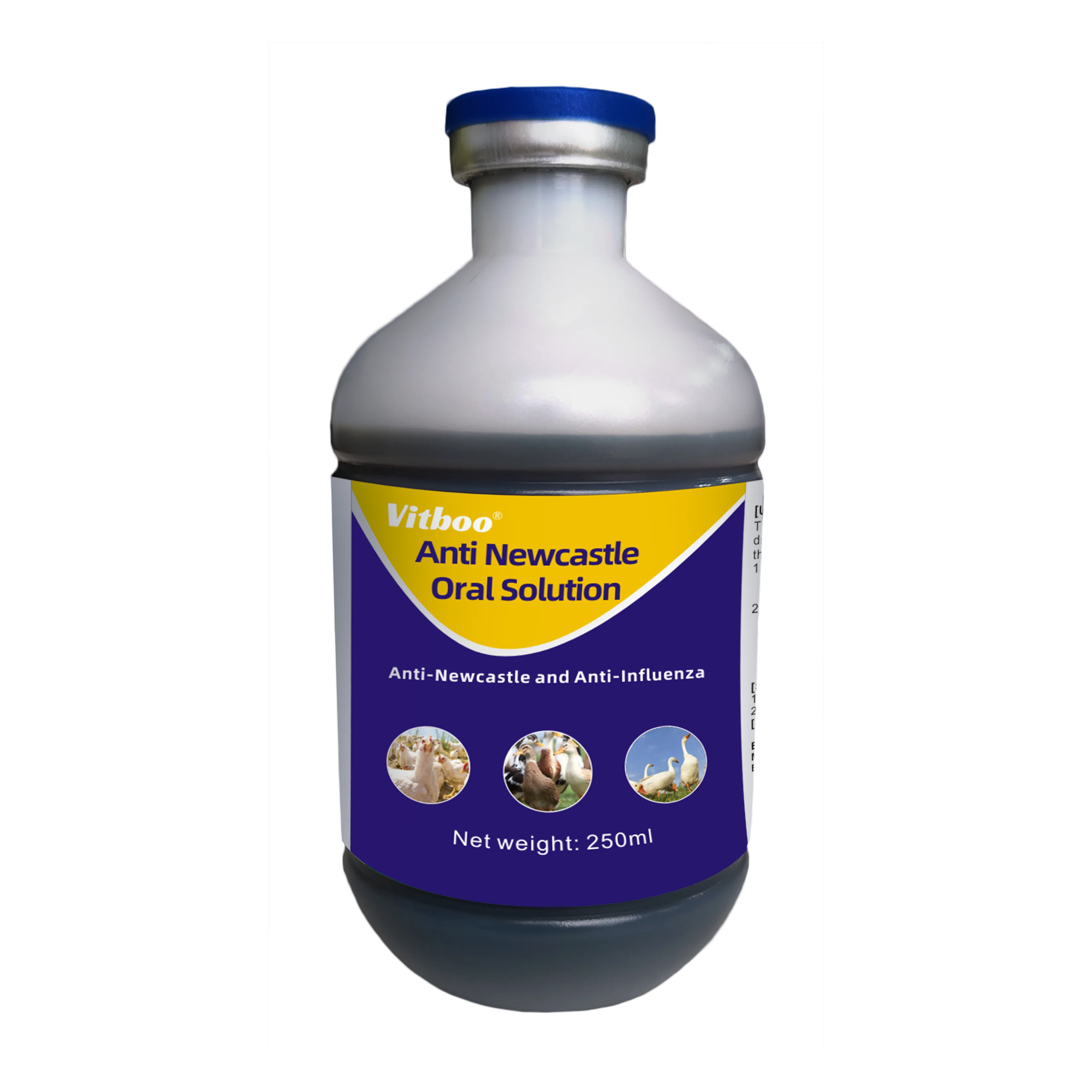In the development of the global livestock industry, the prevention and control of livestock diseases is crucial for ensuring profitable farming and the quality of livestock products. For foreign trade companies, high-quality, healthy livestock products are the key to opening up international markets. This article will detail the symptoms, signs, and treatments of several common livestock diseases, and highlight the important role of traditional Chinese medicine feed additives in disease prevention and adjunctive treatment.
I.Classical Swine Fever
Current Swine fever is an acute, febrile, and highly contagious disease caused by the classical swine fever virus. It is highly contagious and lethal, and poses a serious threat to the swine industry.
Symptoms:
Classical swine fever virus mainly attacks the pig's immune system and vascular endothelial cells throughout the body, leading to a decline in the body's immune function and bleeding, necrosis and other lesions in various organs and tissues.
Symptoms:
Based on clinical symptoms, the disease can be divided into the most acute, acute, subacute, and chronic types. The most acute type develops rapidly, with sudden death and no obvious pre-existing symptoms. Acute pigs experience a persistent fever of 40-42°C, depression, decreased or no appetite, a tendency to lie down, chills, conjunctival flushing, purulent discharge, initial constipation, and later diarrhea. Feces contain mucus or blood, and pinpoint hemorrhages that do not fade with finger pressure may appear behind the ears, on the abdomen, and on the inner sides of the limbs. Subacute pigs have similar symptoms to the acute type, but the course is longer and the symptoms are milder. Chronic pigs experience fluctuating fever, fluctuating appetite, weight loss, anemia, alternating constipation and diarrhea, and some develop purpura or necrotic scabs on their skin.
Treatment:
Currently, there is no specific treatment, so prevention is the primary approach. After the onset of disease, sick pigs should be promptly isolated, and the piggery and surrounding environment should be thoroughly disinfected. Symptomatic treatment, such as fluid replacement, cardiotonic therapy, and fever reduction, can be used to alleviate symptoms and improve survival rates. For prevention, regular vaccination against classical swine fever is the most effective measure. Additionally, adding immune-boosting and antiviral Chinese herbal feed additives, such as Vitboo's "Antiviral Versatile Power," which contains ingredients such as Forsythia suspensa, Scutellaria baicalensis, and Gardenia jasminoides, can effectively boost pig immunity and reduce the risk of classical swine fever.
II. Newcastle Disease
Newcastle disease is an acute, highly contagious disease caused by the Newcastle disease virus. It primarily affects chickens, but can also infect other poultry species, severely impacting the poultry industry.
Symptoms:
The virus mainly damages the respiratory system, digestive system and nervous system of chickens, causing respiratory inflammation, digestive tract mucosal bleeding, necrosis and neurological symptoms.
Symptoms:
Based on clinical manifestations, the disease can be divided into the most acute, acute, and chronic types. The most acute type is more common in the early stages of an epidemic, with chickens suddenly dying without obvious symptoms. Acute chickens experience elevated body temperatures, lethargy, loss of appetite, ruffled feathers, drooping heads and necks, closed eyes, lethargy, coughing, difficulty breathing, a clucking sound when breathing with their mouths open, mucus from the corners of their mouths, swollen glottises containing large amounts of sour and smelly liquid or gas, and loose yellow-green or grayish-white stools, sometimes with blood. The chronic type often develops from the acute type, with chickens exhibiting neurological symptoms such as wing paralysis, leg paralysis, and head tilted back or twisted to one side. The disease course is longer, with a lower mortality rate, but growth and development are stunted.
Treatment:
Immediately isolate sick birds and thoroughly disinfect the chicken coop and equipment. Urgently vaccinate healthy chickens against Newcastle disease to control the spread of the disease. Sick birds can be treated with antiviral and symptomatic medications, such as traditional Chinese medicines that clear heat and detoxify, relieve coughs, and alleviate asthma. Our Vitboo "Anti Newcastle Oral Solution," composed of traditional Chinese medicines such as honeysuckle, isatis root, and platycodon grandiflorum, can be added to the chickens' water during the illness to help alleviate respiratory symptoms, enhance the body's antiviral capacity, and promote recovery.
III. Bovine Pasteurellosis
Bovine pasteurellosis, also known as bovine hemorrhagic septicemia, is an acute infectious disease caused by Pasteurella multocida. It primarily affects cattle, but can also infect other livestock and poultry.
The pathogen primarily infects the respiratory and digestive tracts of cattle, causing sepsis, pneumonia, gastroenteritis, and other symptoms.
Symptoms:
Symptoms can be categorized into septicemic, edematous, and pneumonic forms. Septicemic cattle experience a fever of 41-42°C, depression, loss of appetite, difficulty breathing, cyanosis of mucous membranes, and the appearance of hemorrhages on the skin, leading to rapid death. Edematous cattle experience firm, hot, and painful swelling of the head, neck, and throat. In severe cases, the swelling may spread to the chest and abdomen, leading to difficulty breathing and often death from suffocation. Pneumonic cattle exhibit coughing, runny nose, difficulty breathing, and rales on auscultation of the lungs. Later, diarrhea and bloody stools may develop.
Treatment:
After the onset of disease, sick cattle should be promptly isolated and the contaminated environment disinfected. Antibiotics, such as penicillin and streptomycin, can be used to treat sick cattle, along with symptomatic treatment, such as fluid replacement and fever reduction. In daily farming, adding “Isatidis root leaves granules ” to feed—which contain ingredients such as dandelion, Viola yedoensis, and Houttuynia cordata—has heat-clearing, detoxifying, antibacterial, and anti-inflammatory properties, effectively preventing the onset of pasteurellosis in cattle.
Phone:+86-19138056813
Tel:+86-0371-88959050
Email:info@zsybio.com
Address:Zhengzhou City, Henan Province, China